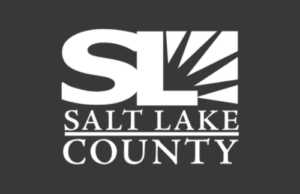
Milestone Case Study
Organization: Salt Lake County Youth Services, Salt Lake City, UT
URL: www.slco.org/youth
https://www.saltlakecounty.gov/youth/youth-programs/transitional-living/
Program Name: Milestone Transitional Living Program (MLTP)
Funding: Family Youth Services Bureau/Runaway Homeless Youth, Salt Lake County, and State Medicaid
What problem is being solved? Mind Matters is used to build the young people’s social and emotional well-being. This includes teaching coping skills and self-care including how to make themselves a priority and building their awareness that their needs are important.
Curricula used: Mind Matters
Curricula benefits: Evidence-based, adaptable, relevant, hands-on, and self-directed through participant journals.
Target Audience: Youth experiencing homelessness
Audience Demographics: Young adults ages 18-22
21% Hispanic and 79% Non-Hispanic
26% Black or African American, 5% Asian, 2% Native Hawaiian or other Pacific Islander
LGBTGIA+
Class size: 4-5 participants at each of the four houses.
Program setting: Residential group homes.
Location of Instruction: Salt Lake City at each of the four residential group homes.
Length of Instruction: Sundays – Two groups a month for 60 to 90 minutes.
Instructors: Lorri Lake, CMHC, Mental Health Therapist and Program Therapist, (Staff assistant/house manager)
Mina Koplin, LCSW, Program Manager, Salt Lake County MTLP
Were any cultural adaptations made? Mind Matters works well for a variety of cultures, so cultural adaptations were not necessary.
Student Workbooks: A mental health assessment is given when youth come into the program. All youth are given a Mind Matters participant journal at that point.
Incentives to students: Snacks and coffee are at each session. The change made during Covid was to give $5 gift cards. Currently participants receive a $10 gift card after they attend two group sessions.
Observable Outcomes: The longer a young person is in the program the more they grown in social well-being. Youth in the Milestone Program gain more self-awareness, are slower to anger, and find their way to self-regulation. Another benefit from sessions is participants can voice what’s going on in their lives because they know support is available.
Educational Outcomes: Upon exit, 88% have Ansel-Casey Life Skills Mastery. When they entered the program, 69% of the students were connected with school, and 33% were drop outs. Upon Exit, 80% of the students are connected to school, have a diploma, a GED, or higher education, with only 11% who have dropped out.
Challenges: Some of the challenges we encountered are that some youth who have had a lot of therapy may see sessions as just more of the same. we encourage them to own what they are learning and fit it into the parts of their life that they want to change. It can be difficult to address negative attitudes the right way. There are also some learning challenges like reading level and writing ability. Covid is another challenge. We addressed this by moving sessions to smaller groups in each home rather than large groups.
Tips: Consider the best days and times to allow for the most participants to attend. Provide opportunities for youth to give feedback on sessions and topics in order to hear them out for what is working. We also give a tip of the month for all (i.e. Give yourself three affirmations a day in February).

